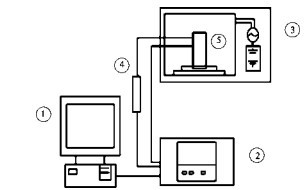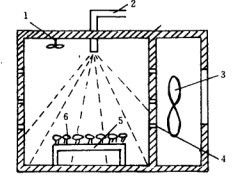Effect of drying methods on quality characteristics of pomegranate powder
Abstract: in order to provide technical basis for large-scale production of pomegranate fruit powder, the quality characteristics of pomegranate fruit powder made by microwave drying equipment, vacuum freeze-drying and spray drying were analyzed and compared. The drying effect of maltodextrin, soluble starch and beta cyclodextrin as drying aid was compared.
The results showed that maltodextrin had the best drying effect, and the powder extraction rate (20%) of spray dried pomegranate fruit powder was higher (s), and the dispersing time (92 g) was shorter. The bulk density (0.30 g / mL) and moisture content (1.63%) were lower. Generally speaking, the quality of pomegranate fruit powder prepared by spray drying is better than that of pomegranate, which is beneficial to maintain the flavor and nutritional value of pomegranate.
Key words: pomegranate microwave drying; drying method; quality characteristics

Pomegranate is a deciduous shrub or small tree of the genus Pomegranate of the family Pomegranate. It originated in Iran, Afghanistan and other areas. It is said that Zhang Qian was introduced into China when he was sent to the Western Regions in the Western Han Dynasty. Pomegranate fruit is rich in carbohydrates, proteins, many kinds of amino acids and essential elements such as K, Ca, Mg, Na, etc. In addition, it also contains trace elements such as Cu, Fe, Zn and many vitamins.
Fruit powder is a kind of powder material made from various fruits after drying, dehydration and crushing. It not only keeps the original nutrients and flavor substances, but also is conducive to human digestion and absorption. In recent years, fruit powder has become one of the hotspots in fruit and vegetable processing because of its natural nutrition, easy to use, easy storage and transportation.
Microwave drying is a new drying method at present. The advantages of microwave drying are fast drying speed, uniform drying of materials, difficult crusting of materials in drying process, high energy utilization efficiency and less investment. The disadvantage is that if the operation is improper, the quality of materials after microwave drying is relatively low.
At present, pomegranate has been processed into juice, vinegar, fruit wine and other products, but there are few reports about pomegranate powder. In this study, pomegranate fruit powder was prepared by spray drying, microwave drying and vacuum freeze drying. Their physical properties were compared, and the best processing method of pomegranate powder was discussed, in order to provide theoretical basis and technical reference for the industrial production of pomegranate fruit powder.